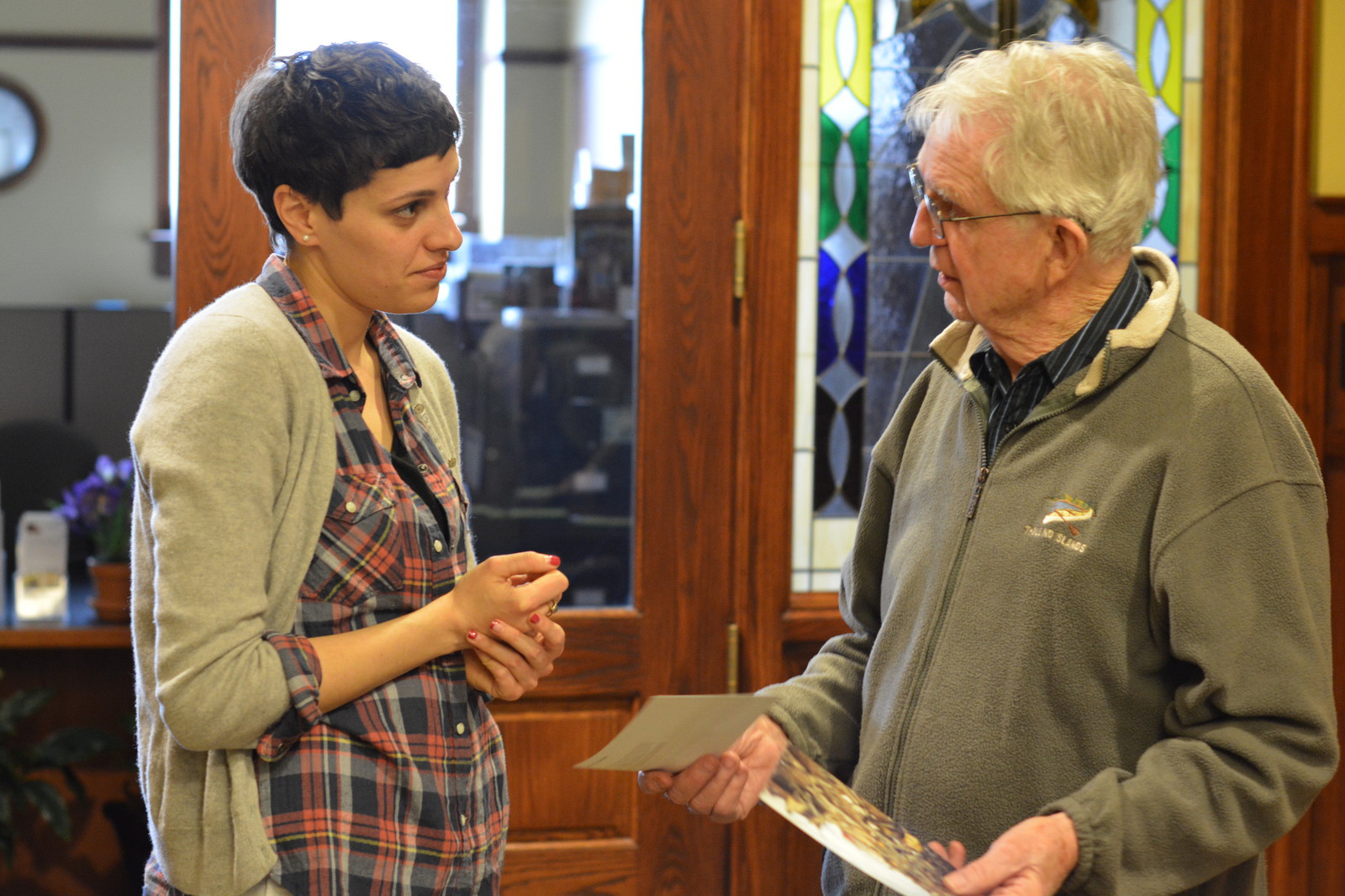
Anne Paq and Ala Qandil visit with Iowans about their award-winning documentary "Obliterated Families: The Shattered Lives of People in the Gaza Strip." AFSC
For more than a decade, two million Palestinians in Gaza have lived under a brutal military blockade imposed by Israel. AFSC has a long history of working in Gaza, and we recently launched a project to bring more attention to the plight of Palestinians in Gaza living through the blockade.
Talking about Gaza can be difficult; many people are unfamiliar with the situation there, or have incorrect information about it. However, facts alone are unlikely to change people’s minds, especially on charged issues. To change minds, research suggests that you have to share facts in ways that people can hear.
That is why AFSC created Gaza Unlocked, a resource that showcases people’s stories and shows how the blockade affects everyday life in Gaza, while providing important facts about the situation. Here are two tips that – along with the resources at Gaza Unlocked – can help you start a conversation about Gaza with somebody who might not agree with you.
Tip #1: Listen
When somebody disagrees with you, it can be tempting to try to argue with them. But research suggests that it might be more effective to ask open-ended questions and listen. Acknowledge their feelings, and try to get them to think about their own experiences.
Recently, a neighbor was offended by an AFSC exhibit showing photographs of Gaza. I asked them why and learned that although they agreed that violence against all people is wrong, they feared that the display, which called for Israel to be held accountable for its actions in Gaza, could encourage anti-semitism. Listening to someone’s fears, asking them questions, and acknowledging their feelings is a good way to build understanding and to highlight our shared humanity.
Tip #2: Find common ground
Instead of telling a person they are wrong, or bombarding them with facts, make connections between their experiences and the issues you want them to focus on. When possible, speak from shared values like compassion.
In a conversation with the neighbor above, you might say something along these lines: "Like you, I am also concerned about the recent increase in anti-semitic incidents in our country, but I must respectfully disagree that that precludes criticism of Israel for its human rights violations, including the collective punishment of two million Palestinians in Gaza."
Another option might be: "We agree with you that violence against all people is wrong. But this concern should not keep any of us from speaking out wherever it may occur, including against Palestinians in Gaza."
AFSC launched the Gaza Unlocked project because we want people to understand that people in Gaza are ordinary individuals and families just like us, and we have much in common. We hope these stories can start conversations that help build common ground among people in the United States and elsewhere.
Given the one-sided portrayal of Palestinians in the mass media and the increase in Islamophobic hate crimes in our country, it is particularly important to have conversations about Gaza right now – even when it is uncomfortable.